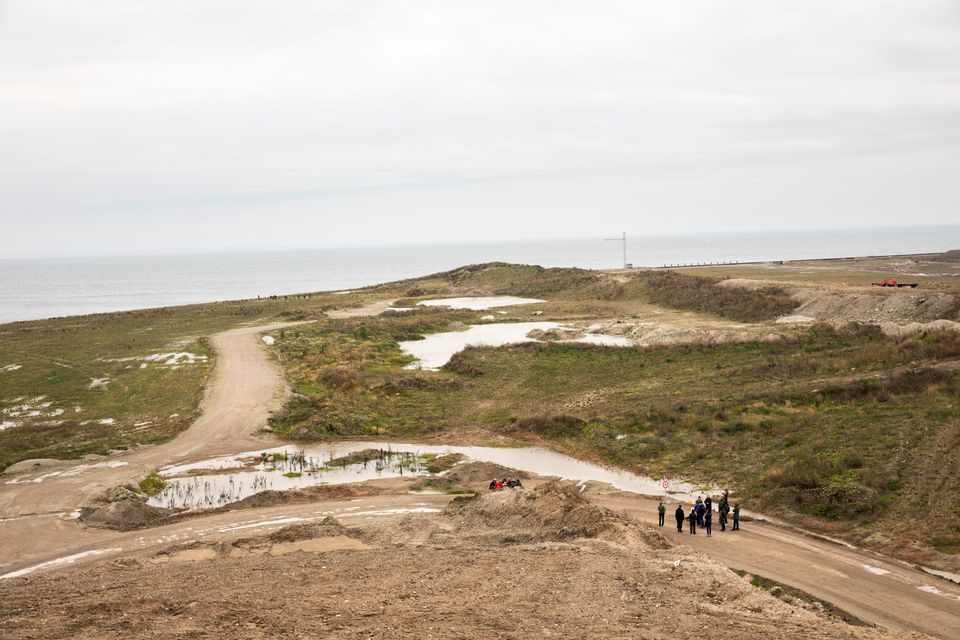Denmark is "listening in" on negotiations to form a financial pact between Eurozone countries to help bring the sovereign debt crisis to an end.
After the UK last night vetoed a proposal to change the Lisbon Treaty, the 17 countries using the common currency agreed they would create their own set of tough financial regulations.
Before yesterday’s meeting, PM Helle Thorning-Schmidt said that treaty changes were the most likely course of action for finding a solution Europe’s current debt crisis. But after the UK's rejection of the changes – which would have imposed tougher financial regulation and penalties on all member states – the Eurozone countries have set out on their own, creating what many are calling a ‘two-speed Europe’.
Negotiations are currently ongoing, and according to Marlene Wind, head of the Centre for European Politics at Copenhagen University, the plans are far from being finalised.
“It’s very uncertain what’s going to happen with the existing European Union. Nobody knows how the new co-operation will work legally, and whether it is possible to make an inter-governmental agreement outside the treaties.”
After the agreement was announced, the economy minister, Margrethe Vestager, told Jyllands-Posten newspaper that while she thought the plan was a step in the right direction, it was unfortunate that the EU would be split.
“It’s good if it stabilises the euro and increases economic responsibility,” she said, "but it’s annoying that it won’t happen through a treaty change with all 27 countries. It’s better to stick together than for each of us to go our own way in a crisis of such enormous dimensions.”
Vestager commended the decision by the 17 Eurozone countries to forge ahead and build stronger financial safeguards to solve the sovereign debt crisis, but voiced concern about Denmark’s current position outside of the euro.
“Eurozone countries will no longer accept deficits in public budgets,” Vestager said. “There’s no doubt that increased economic discipline and control over the euro is good for everyone. So far so good. But Denmark has opted-out of the euro and it is in relation to that that we have to assess what the consequences of a treaty change amongst the 17 will be.”
Denmark has been invited to sit in on ttoday's meetings in Brussels – where leaders will continue discussing the details of the inter-governmental treaty amongst the 17 Eurozone countries – even though it is not a part of the Eurozone due to its four opt-outs of the 1992 Maastricht Treaty.
The opt-outs are increasingly coming under fire for sidelining Denmark at a time when increased co-operation, or solidarity, is being voiced by many as an integral part of Europe solving, and emerging from, the sovereign debt crisis together.
While the government has promised a referendum on dropping two of the exceptions – the defence and legal opt-outs – Eva Kjer Hansen, EU issues spokesperson for Venstre, told Politiken newspaper that the euro opt-out is now working against Danish interests.
“We are now seeing the consequences of Denmark having an exception to the euro as we are not amongst the core countries. Splitting Europe into different groups could weaken Denmark's influence.”
Hansen added that parliament needed answers about whether the euro opt-out excludes Denmark from joining the 17 Eurozone countries in their new pact.
Initial reports after last night’s agreement suggested that Denmark was one of six non-euro countries actively participating in the negotiations to formally join the inter-governmental treaty.
But both Thorning-Schmidt and the Europe minister, Nicolai Wammen, have since stated that Denmark cannot participate before consulting parliament.
“Of course we have to first discuss in parliament whether we will participate or not,” Thorning-Schmidt told the press. “We have said we will attend the meeting today and we will of course. But Denmark has opted-out of the euro, so we can’t be a part of anything before we have talked to the parliament.”
According to Politiken, Wammen said Denmark was merely "listening in" on the negotiations, but added that being allowed to sit in the room with Eurozone countries was "very surprising".
Despite the lack of stated commitment, Danish politicians have expressed concern that joining would be contrary to the wishes of voters.
“When you read the PM’s statement, it appears quite clear that Denmark has indicated that they have the intention of involving themselves in a process that would end with a treaty change. That means we’re giving up the least real opportunity to run an independent economic policy for Denmark,” Per Clausen (Enhedslisten) told Poltiken.
Clausen argued that before Denmark could consider joining the pact, a referendum would be needed.
“They have to accept that the Danish population has repeatedly said it wants to remain outside the Euro. Before you can include the Danish people in a co-operation that actually brings the country closer to the euro, you have to at least ask the people with a referendum.”
While the inter-governmental treaty has yet to be finalised, initial reports suggest it would mean closer financial co-operation between member states and new compulsory regulations on national budgets with automatic sanctions for countries who break them.













